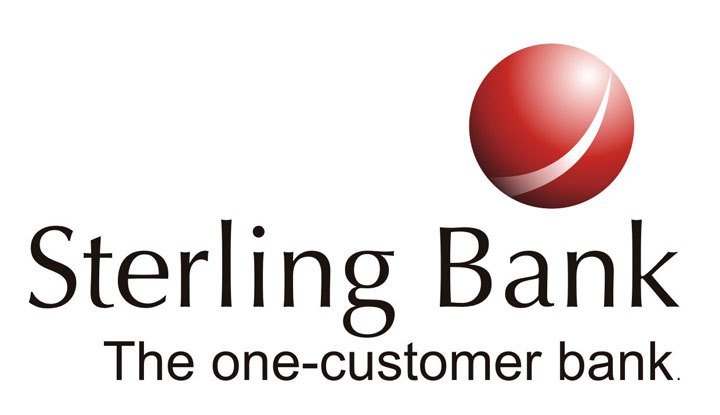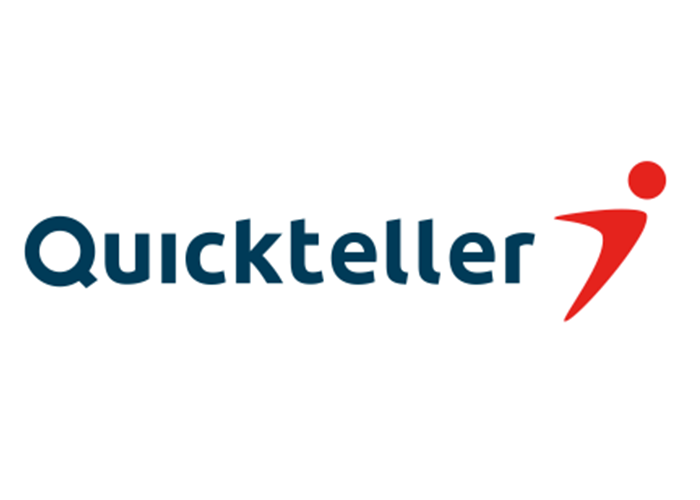By Olawande Meyungbo
In a world where climate change, ethical business practices, and transparency are no longer just buzzwords, brands are under increasing pressure to align their values with those of their customers. Studies show that over 70% of consumers prefer to patronize brands or organizations that are committed to sustainability. At the same time, you’ve got artificial intelligence, right? It’s changing everything, from how brands talk to us to how they make decisions and allocate their resources.
Now, sustainable brand building is going beyond being eco-friendly. It’s about looking at the whole picture – the environment, how you treat people, and making sure your business can last in the long run. And AI? It’s like a super useful toolbox. It can help brands analyze data, predict what might happen, automate tasks, and even personalize things for customers. So, it’s not just about surviving as a business anymore through P&L driving initiatives; it’s about using AI to actually thrive in this new, more conscious world.
Let’s delve into how forward-thinking organizations can harness the power of AI to build brands that are not just profitable, but sustainable in every sense. We’ll explore AI’s role in supply chain transparency, consumer engagement, product innovation, and general operational efficiency.
Definition of Key Terms
A sustainable brand is one that weaves environmental care, social responsibility, and ethical practices into the fabric of its identity. It goes beyond profit to prioritize long-term impact—minimizing harm, promoting fairness, and contributing positively to communities and the planet. Every touchpoint, from sourcing materials to marketing messages, reflects a deep commitment to doing good while doing well.
Artificial Intelligence (AI) refers to the use of computer systems to perform tasks that typically require human intelligence. These tasks include learning from data, solving problems, making decisions, and even understanding language. Common AI subfields include machine learning and natural language processing, which power many real-world applications across industries.
Establishing the Interconnection
The intersection of use of AI and brand sustainability is crucial because AI enables smarter, faster, and more informed decisions. Through real-time data analysis and automation, businesses can identify consumer needs, spot inefficiencies, reduce waste, and optimize resources—achieving sustainability goals with greater precision and scale than traditional methods ever allowed.
ALSO READ: PETER JAMES WINS FUTURE LEADER OF MARKETING AT THE 2025 ADVAN AWARDS
Exploring the Opportunities
Sustainable Product Design and Innovation
You know, just wanting to make sustainable stuff isn’t enough. You’ve got to be smart about it, think ahead, and get creative. And that’s where AI can really shake things up. Because it can handle tons of data, AI can help brands make smarter choices right from when they’re first thinking about a product.
Think about it: AI tools can predict the environmental impact of different materials to high accuracy. So, instead of making decisions based on gut feelings or analyzing numerous data with high allowance for human errors, a brand could use AI tools to find material options that break down naturally, can be recycled, or don’t use up as many resources.
Imagine a shoe company using AI to look through all sorts of materials, both natural and man-made. The AI wouldn’t just look at how long they last and how they look, but also things like how much carbon they produce, how much water they use, and if the people making them are treated fairly. That way, they can design shoes that are actually sustainable and still good quality.
And get this – there’s even AI that can come up with new design ideas! It can suggest ways to make products using less stuff or design them so they can be easily taken apart and reused later. By testing how a product will perform and how it will impact the environment over its whole life, AI makes sure that being sustainable isn’t just something you think about at the end – it’s built right in from the start.
Optimizing Supply Chains for Sustainability
Supply chains are often the largest contributors to a company’s environmental and ethical footprint. AI offers powerful tools to improve transparency, efficiency, and sustainability across every link. By analyzing supplier data, AI based tools can trace the origin of raw materials and ensure they meet environmental and ethical standards. This is particularly crucial in industries like FMCGs and fashion, where hidden labor abuses or unsustainable farming practices can severely damage a brand’s reputation.
AI also enables smarter logistics. For example, algorithms can design more efficient transportation routes to cut down emissions or predict delays due to climate-related events. AI can even flag suppliers who pose a risk to sustainability compliance based on historical data and predictive modeling.
Additionally, AI tools support ethical sourcing by evaluating labor practices across supply chains, alerting brands to potential human rights violations before they escalate. With such insights, businesses can actively mitigate risks and uphold their sustainability promises.
Circular Economy Initiatives
Transitioning from a traditional linear model to a circular economy—where products are reused, refurbished, or recycled—is a major sustainability milestone. AI is at the heart of making this shift more practical and efficient. It helps optimize how materials are used, recovered, and reintegrated into the production cycle.
For example, AI-driven machines can automatically sort recyclable materials with greater precision than manual labor, improving the efficiency and purity of recycling processes. Predictive analytics can also forecast product lifespan, encouraging companies to design items that are easier to repair or upgrade, rather than discard.
AI-powered platforms are already connecting consumers with repair services or second-hand markets based on product usage data. Furthermore, product-as-a-service models—where ownership is replaced by access—are being shaped by AI insights. These models reduce waste and extend product life cycles while offering new revenue streams for brands.
AI doesn’t just support circularity; it makes it scalable, intelligent, and economically viable.
Personalized Sustainability Communication and Engagement
In the digital age, one-size-fits-all messaging no longer resonates. Consumers want brands to speak directly to their values, and AI can make that possible. Through data analysis and machine learning, AI allows brands to deliver personalized sustainability messages that feel both relevant and authentic.
Take AI-powered chatbots, for instance. They can answer consumer queries about a product’s sourcing, its availability, carbon footprint, or ethical manufacturing processes in real time. This boosts transparency and trust. AI can also offer personalized recommendations—suggesting more sustainable options based on a consumer’s preferences or past purchases.
However, this level of personalization comes with responsibility. Brands must be careful not to cross ethical boundaries, such as over-targeting or using personal data without consent. Transparency in data usage and a clear focus on empowering—not manipulating— Consumers are key.
When used thoughtfully, AI helps brands create deeper, more meaningful connections around sustainability, turning casual customers into loyal advocates.
Energy Efficiency and Resource Management
Managing energy and resources effectively is one of the most direct ways a business can reduce its environmental footprint, and AI excels in this area. From office buildings to large-scale manufacturing plants, AI can monitor usage patterns, forecast demand, and automate systems for optimal efficiency.
Smart building management systems powered by AI can adjust heating, lighting, and ventilation based on occupancy and weather conditions, significantly reducing unnecessary energy use. In factories, AI-driven predictive maintenance tools monitor equipment health and prevent breakdowns that often lead to wasteful downtime or energy spikes.
AI also plays a critical role in water management. In agriculture, for example, it can analyze soil data, weather forecasts, and crop needs to optimize irrigation schedules, ensuring water is used only when and where it’s needed.
These optimizations don’t just save money—they help businesses meet environmental targets, reduce emissions, and improve their overall sustainability performance from the inside out.
Monitoring and Reporting Sustainability Performance
You know, being honest and clear about your sustainability efforts is super important for building trust with everyone – your customers, investors, even the government. And AI can really help with that. It can automate the whole process of collecting data, analyzing it, and creating reports on all sorts of sustainability metrics.
Think about it: companies can use AI to get real-time info from sensors, track how much pollution they’re putting out, monitor their water use, or even use satellite images to see if their operations are linked to deforestation or land damage. This level of detail means brands can spot problems quicker and also show they’re being responsible through clear reporting.
AI also makes those Environmental, Social, and Governance (ESG) reports way better. It cuts down on mistakes, fills in any missing data, and can even predict future trends. So, for investors, regulators, and us as consumers, the information we get is more consistent and trustworthy.
Basically, AI turns sustainability reporting from something you have to do into something that helps you improve, makes people trust your brand more, and shows you’re serious about doing business the right way.
Highlighting Challenges and Ethical Considerations
While the benefits of leveraging AI for sustainability are compelling, it’s crucial to address the ethical and practical challenges that come with it. One significant concern is data privacy. AI systems require vast amounts of data, and without strict safeguards, personal or sensitive information could be misused or exposed.
Another issue is algorithmic bias. If AI models are trained on skewed or incomplete data, they may produce outcomes that are discriminatory or misaligned with sustainability goals. For example, an AI system prioritizing profits could unintentionally recommend unsustainable shortcuts.
There’s also the energy consumption of AI models themselves, particularly large-scale systems, which can ironically contribute to environmental harm if not properly managed. Additionally, greenwashing remains a risk, especially when AI tools are used more for crafting marketing narratives than for driving actual impact.
To navigate these challenges, companies must commit to responsible AI practices—prioritizing transparency, ethical design, and accountability at every step.
The Future of AI and Sustainable Brands
As AI continues to evolve, its integration into sustainability strategies will become more seamless and sophisticated. We can expect to see AI tools embedded in everything from carbon tracking and regenerative agriculture to ethical auditing and circular business models.
Future innovations may also include collaborative AI ecosystems, where brands, governments, and NGOs share data and insights to tackle global sustainability challenges collectively. But as we move forward, innovation must be balanced with integrity, ensuring that AI supports genuine progress, not just appearance.
Conclusion
AI holds transformative potential to help businesses not only talk about sustainability, but to live it. With mindful application, innovation, and a commitment to ethics, AI can become a powerful ally in building sustainable brands that truly stand the test of time.


















